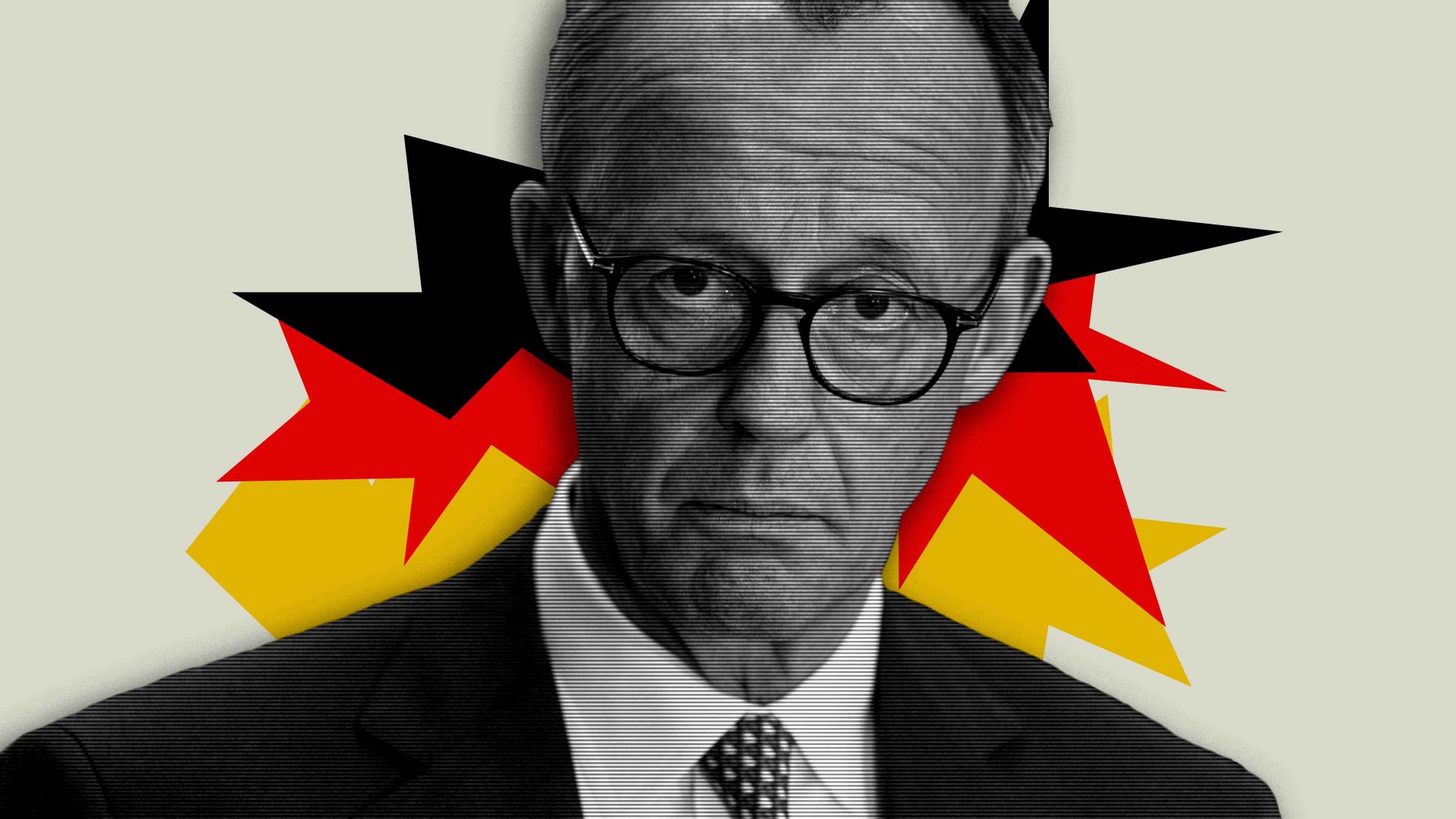He’s done it again.
Friedrich Merz has a habit of dropping rhetorical hand grenades in live interviews. Sometimes the pin’s still in, sometimes it isn’t — and it’s often unclear whether the explosion was planned or accidental.
Even before becoming chancellor, Merz had a knack for stirring controversy. He once called misbehaving migrant kids “little pashas”, said that homosexuality was fine “as long as it remains within the law and doesn’t affect children”, and argued that promoting women into cabinet roles “doesn’t do them any favours”.
If you’re Team Merz, you either cheer him on — or wince, knowing he’s a conservative, but not a misogynist, homophobe, or racist. If you can’t stand him, however, those remarks are a gift: each one an invitation to call him exactly that.
And so, for the past three weeks, Germany has been in a shouting match – because, on the minefield of migration, Merz once again chose vagueness over clarity.
To understand what he said, you need the context. During a visit to Potsdam, a journalist reminded the chancellor that he’d once promised to halve the AfD’s vote share – yet the far right party is now polling above 30% in Brandenburg and elsewhere.
Asked what he planned to do about it, Merz said tackling irregular migration was key. Then came the line that detonated: “This federal government has reduced the figures from August 2024 to August 2025 by 60%, but of course we still have this problem in our cityscape (Stadtbild), which is why the interior minister is now working to enable and carry out repatriations on a very large scale.”
I assume most Germans knew what he meant. But many others, particularly among the Greens, the Social Democrats and the far left, were up in arms. They accused Merz of implying that people with darker skin didn’t fit his ideal of a tidy cityscape and demanded clarification.
Instead, nearly a week later, Merz doubled down. “I don’t know if you have children – and daughters,” he told a journalist asking for comment. “Ask your daughters, I suspect you’ll get a pretty loud and clear answer. I have nothing to take back. To the contrary: we have to change something.”
Later he added: “I’ll just say it again: anyone who sees it in everyday life knows that I am right with the comment I made last week.”
That evening, a few thousand protesters gathered outside CDU headquarters in Berlin, calling themselves Töchter – “daughters”. Within 24 hours, more than 120,000 people had signed a petition titled We Are the Daughters, declaring: “We will not be harnessed by your racism, Mr Merz! You do not speak for us.” They argued that violence against women happens overwhelmingly at home, not in the streets.
Another two days later, sitting next to Keir Starmer in London, Merz finally said what he could have said in the first place:: that Germany needs immigration – as he’s long maintained – but that there are “problems with those who do not have permanent residence status, do not work, and do not abide by our rules.”
According to the latest ZDF poll, 63% agree (while 29% don’t).
Judging by the flood of readers’ emails received at FOCUS magazine about the Stadtbild row, it wasn’t so much Merz hitting a nerve. For many, seeing him branded a racist felt like their everyday experiences were being dismissed by “those who can afford never to use public transport”. The number of women writing that they felt increasingly uneasy in parks and train stations – or simply didn’t use trains any more – after dark was striking.
Suggested Reading


Why Merz will pay the price for challenging Netanyahu
And frankly, telling women who feel unsafe in public that, statistically, they’re more at risk at home isn’t exactly a winning comms strategy. That doesn’t mean domestic violence should be minimised — far from it — but it’s simply a different issue.
The real question is: will the Stadtbild debate actually help Merz and the CDU, now lagging behind the AfD in some polls?
My hunch: probably not.
In politics, if you raise a problem, people expect you to solve it. And while Merz isn’t wrong that Germany faces issues with irregular migrants who ignore the rules, the country’s deportation system is so cumbersome that he’s unlikely to deliver quick results.
And if the Stadtbild still looks much the same by the next elections, the AfD will gleefully pounce – accusing Merz of empty words and false promises.











